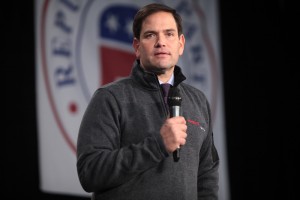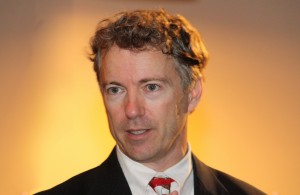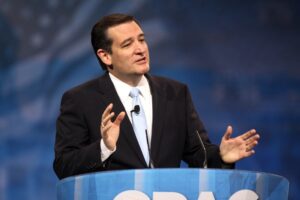New Hampshire and Beyond
The time between the Iowa Caucuses and the end of Super Tuesday is seen as the most important time within the GOP nomination race. The Iowa Caucuses are the first primary in every national election, and «Super Tuesday» is the name given to Tuesday March 1st, when almost 30% of the Republican primary delegates will […]
The time between the Iowa Caucuses and the end of Super Tuesday is seen as the most important time within the GOP nomination race. The Iowa Caucuses are the first primary in every national election, and «Super Tuesday» is the name given to Tuesday March 1st, when almost 30% of the Republican primary delegates will be distributed. It is important to note that all primaries thus far and all those set for Super Tuesday are proportional, meaning that candidates win delegates based on the percentage of the votes that they receive, as opposed to a «winner takes all» primary.

First, let’s take a moment to remember the many candidates who have dropped out of the race in the past two weeks. Prior to the New Hampshire primaries, it seemed as though the GOP field had sorted itself out. Mike Huckabee and Rick Santorum failed to make much of an impact in Iowa, and as the two most socially conservative and evangelical candidates, their hopes on making a national impact rested on their ability to start momentum and traction in Iowa. Failing to do that, both of them dropped out of the race, hoping to help evangelical voters by narrowing their choices on socially conservative nominees. Santorum then went on to endorse Marco Rubio for President, joining George Pataki and Bobby Jindal as a drop out who endorses Rubio.
The next candidate’s exit was seen as somewhat of a surprise in the political world. That candidate was Rand Paul. Although Rand had not polled above 10% in national polls since late 2014 and was considered a long shot candidate, many analysts predicted that Paul would stay in the race until after New Hampshire, in order to assess his performance among more conservative voters in Iowa and more moderate voters in New Hampshire. Paul’s blend of libertarianism, isolationism, and classic conservatism made him incredibly popular among young voters. However, those same qualities scared many of the Republican elite who believe that America needs to be a global presence. His isolationist opinions made him an easy target in debates about foreign policy, with candidates quick to criticize his anti-interventionist tendencies, and call him out for being weak. In 2014, Rand Paul was seen as the young new face of the party and a man who had the potential to completely change its direction. However, try as he did, he was unable to live up to that expectation.

Similarly to how conservative candidates depend on Iowa to make their mark, more moderate candidates depend on New Hampshire. Carly Fiorina and Chris Christie were both hoping to stake a claim in New Hampshire and to separate from the rest of the moderate and establishment Republicans. In a way, each of them did stand out. Following their abysmal results in New Hampshire, both dropped out. Fiorina and Christie fell victims to an oversaturated GOP field, and with nothing to set them significantly apart from the pack they faded into oblivion.
Donald Trump came into New Hampshire as the presumed winner, so it was no surprise that he won. What were surprising, however, were his margin of victory and his runner up. Trump got over 35% of the vote and beat the next best opponent, Governor John Kasich, by 20%. While Trump’s victory was unexpected in its margin, even more unexpected was the performance of the rest of the pack. John Kasich upset analysts’ predictions by coming in at a solid second place, putting distance between himself and his competitors. The rest of the field was a mess.

Cruz came in a distant third, with Bush and Rubio closely behind him at 4th and 5th. How did Rubio go from being third in Iowa with nearly 25% of the vote, to 5th in New Hampshire barely making 10%? Simple – he did very poorly at the debate. Many early state voters choose to wait until the last minute to make up their minds, allowing them to look at all candidates impartially and to carefully make their decision. This helped Rubio in Iowa, where many last- minute voters chose him following a successful debate performance. However, in the days before the New Hampshire vote, Rubio had an awful debate performance, and as a result, many of these last-minute voters chose to go for Kasich, who debated with respect and dignity. Since New Hampshire, Kasich has picked up some momentum, likely drawing from Christie and Fiorina’s pool of voters. However, the voters he has picked up have only allowed him a jump to a mediocre 4.7% nationally. Rubio, on the other hand, has jumped over 10% in the polls, rising from 10% to 20.3% nationally, and has not lost any ground in South Carolina since New Hampshire. While Kasich may have one second place victory under his belt, he is considered by many to be too moderate to win in many of the country’s more conservative and religious states. I believe that Rubio is the only establishment nominee who has a chance at the nomination due to his ability to relate to evangelical and conservative voters, as well as to more moderate voters who value electability.
February 20th will be the South Carolina primary, and the performances of Trump, Cruz, and Rubio over the coming weekend will have long-lasting effects on their overall campaigns. The aftermath of this primary will likely see Ben Carson drop out of the campaign as his numbers were stagnating last year and have been steadily declining over the past couple of months. Make sure to tune in and see the results live this Saturday!
Michael GOFMAN





